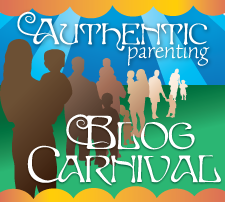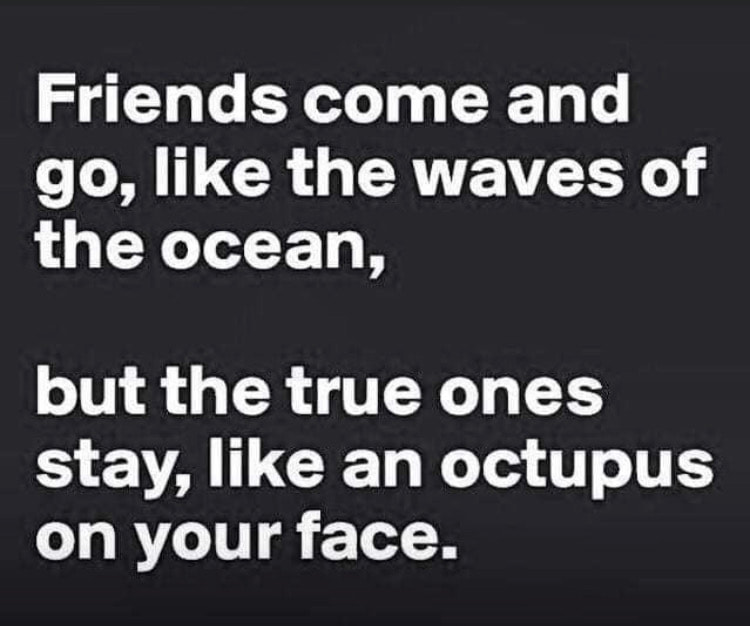The above passages are taken from here on Sandra Dodd's unschooling website, one of my favorite resources. There is a whole lot more to read over there on the difference between "teaching" and "learning". I have taken her wise words to heart and very rarely use the word "teach" anymore, except on the rare occasion when it slips out (old habits die hard!) From my own blog a couple of years ago, when I tried to capture the magic of unschooling: "Yes, I encourage, show, demonstrate, support, offer help, give tips or feedback (if they are desired), but I can honestly say I have not "taught" my children one thing. And this fact amazes me every time." The main point being: the word "teach" is inaccurate and misguided. It gives the "teacher" a false sense of power and control that simply does not exist. I couldn't believe how appropriate Sandra's passage was this evening when I found it. I knew she had written about the difference between "teaching" and "learning" - but when I read her example of someone being in a room thinking about a machine gun while being "taught" - it was rather astounding, considering the topic on my mind. This past week a friend posted an article, you can read it here: Stopping the Next Shooter: Could Teaching Kids Empathy and Mindfulness Really Help? I wanted to "like" it but there was something in me holding me back. And there is a lot that I agree with, such as this quote: "Now, all we have to do is realize that social and emotional learning is not just a nice add-on for our children’s education, but a crucial must-have if we want to prevent such atrocities. SEL is the missing piece in our education system and it is obviously a critical one at this point in time." YES. Of course I agree - social and emotional learning (now turned into an acronym - SEL) is crucial. YES. This is exactly what I have been thinking, feeling, and living all these years with my own children. 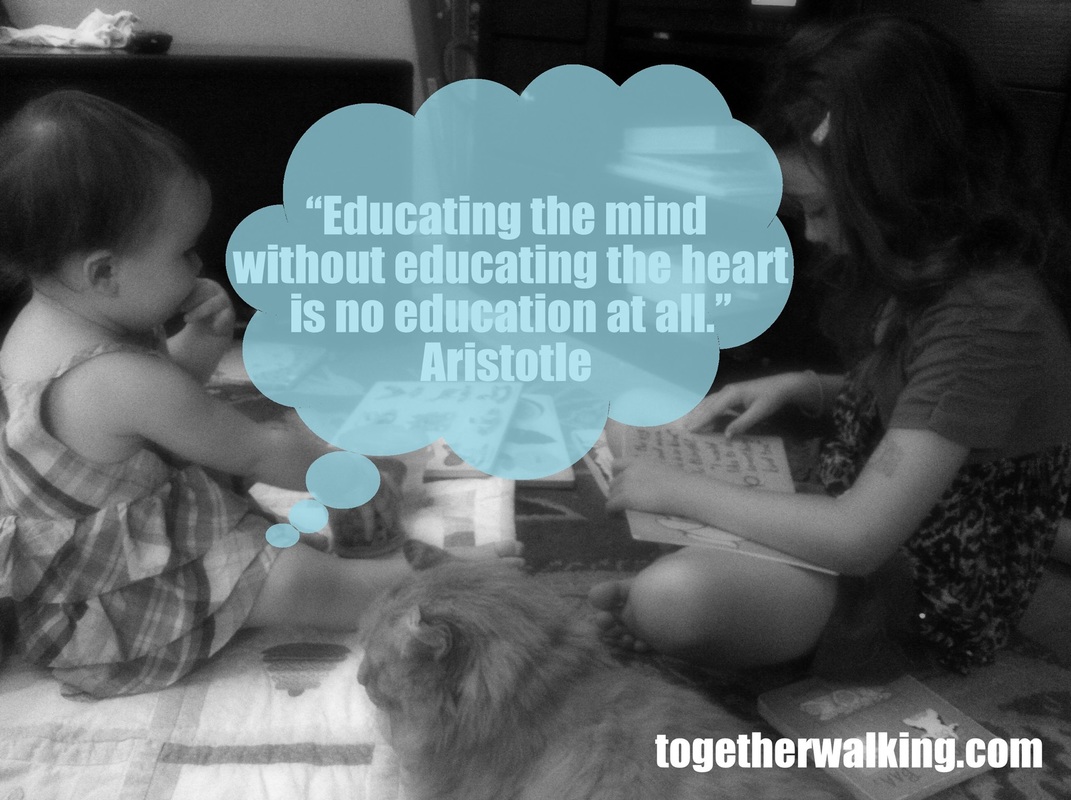 Click to open in my Facebook page. Here is what I wrote when I first shared it 2 years ago: I believe this is a HUGE way we are both failing our children and falling short as a society. We are so focused on accumulating "knowledge", and the drive for a very limited version of "success" that we are forgetting what the truly important things are in life. What is more important that our children learn - compassion or to read? I don't mean that they are exclusive of each other either - both are possible. I mean that in our drive to MAKE children learn certain things by a certain age we are missing the opportunity to help them learn much more important things. My 7 year old is still slowly on the path to becoming a full-fledged independent reader. If she were in school I'm sure she would be labeled "behind". But I see every day how generous, kind, and compassionate she is and I know that she is learning way more important lessons. Not only that, I truly believe that she WILL learn to read, in her own time. (Because she *is* brilliant after all!) Please share if you are inspired to! But. BUT. I can't help feel like articles/ideas/programs like this are missing the boat still. Their heart is in the right place, of that there is no doubt. And the ideas are getting CLOSER to the truth. But once you realize that it is NOT POSSIBLE to "teach" someone, you realize that these programs will always fall short. Will they help some children and communities? It seems they already are. Will they prevent mass shootings? Possibly some. But again: If I am standing in the front of a room "teaching" a group of 9 year-olds tools they can use when they feel out of control, and there is a child who is instead thinking about abuse he or she is suffering at home (or possibly even in that very school) - has that child LEARNED how to use the tools? Obviously, I think no. Even if these are the very best tools, PROVEN to improve emotional control, empathy, etc. etc., it will not matter for that child who is focused on something else in the moment - something that is more important to them, something that they need to address before they can learn anything else. Again - I'm NOT knocking the actual tools. The tools are good. The intentions are wonderful. But we are still so stuck in our paradigm that we cannot see where we are falling short. A major reason we are stuck is because of fear and our desire to control things. As I mentioned above - "teaching" gives us a sense of control and power - we've presented the material, so we are off the hook. So, I'm sure some of you may be wondering - well what is your solution then, Miss Smarty Pants? Well, I read another article that demonstrates in a small way children and empathy in action. You can read it here: Why adults have to stop trying so darn hard to control how children play. The article opens by describing a situation between a little boy and a group of girls in conflict and how it was resolved without adults intervening. Here is the passage afterwards: What if the adults watching had intervened right away? What if we had jumped in as soon as there was a sign of conflict? We could have said, “Be nice girls. Let him play.” Or told the boy to stop yelling, explaining to him that this isn’t the best way to be included. But what would that have accomplished? 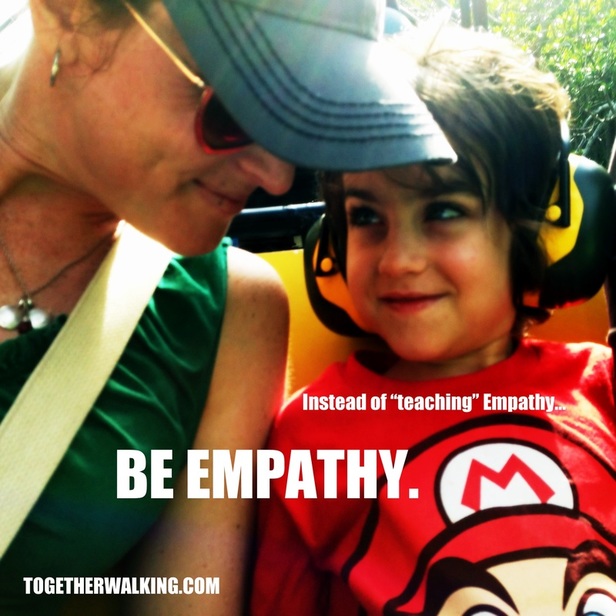 Now, I'm not a huge advocate of letting kids "work it out" on their own all the time (and the most experienced unschooling parents that I respect are not either). And if you read that example it may appear that is what the adults did. But in truth the adults were nearby, observing, and actually wanted to jump in and intervene much sooner than they did. I'm on a bit of a tangent here, and this is actually a whole different topic - about how/when/why to intervene when kids are struggling. For me, it comes down to supporting children (and all people!) where they are. The truth is, many kids lack these skills because they are NOT getting practice. And we adults are not in the practice of being present while waiting to see if they really need our help. So we all need opportunities for this practice and the space and time to grow and learn. The way our society is structured right now doesn't support any of these things happening as often we need it to. This whole post feels like loose threads, while in my mind it is a very tight theory. Probably because I am out of (writing) practice too! But basically my point is this -No - we cannot "teach" empathy... we need to BE EMPATHY. Many parents are already doing this - and their children will be very receptive to the lessons available in the Toolbox program or others like it that purport to "teach" social-emotional skills. Other children may have role models besides or in addition to their parents that inspire them, and still others may not have very many role models but their own nature makes them receptive to the tools. But in my heart I feel that the most hurt and damaged children - the ones that will become mass shooters in the future - cannot be "fixed" by these tools and programs alone. There must be a bigger paradigm shift. The predominating attitude towards children in our culture is still one of control. Spanking is still a norm. Punishment is accepted as necessary. School is ingrained in our way of living and within this paradigm children have very little say over their day to day lives. Punishments and rewards are built into the school system, as is competition, and the results are often the very opposite of what we want for our kids. But change is happening. More and more "alternative" ideas (hippy, peace-loving, radical, strange, yada yada, etc. etc.) are breaking into mainstream awareness. Just this week two more articles passed through my Facebook feed that talked about "radical" ideas like RESPECTING your children and talking to them like people! The authors noted how much their home lives had changed for the better by making these changes. (You can read them here and here.) So yeah, I'm idealistic. I actually believe if we all started raising our children with love and respect, modeling empathy, kindness, patience, resilience, forgiveness, humility, the ability to change our minds and to apologize, and JOY (edited to add Joy - how could I forget! We must model fun, curiosity, and pure unadulterated JOY!)... yes, if we became all of these things I do think we would do away with the majority of the mass shootings. This is why I am so focused lately. I cannot get bogged down in every tragedy that occurs in the world (there are so many!) I have to keep my eye on the prize. I'm doing my job right here in my own home, raising these kids that somehow miraculously have been entrusted to me. Do I wish I could do more and magically change the world? Of course I do - we all do. But I refuse to focus on what I cannot control and become despondent and hopeless because something horrible might happen to me or my loved ones "someday." I choose to focus on what *I* CAN control. Because although my life often feels charmed and magical to me, I know it's not really magic. It's hard work being the best person you can be each day, hour, moment. But it's worth it when you see the results.
2 Comments
Brenda
12/16/2015 08:39:25 am
This was very well written. And I totally agree with you here. That we can't teach anyone anything unless they show interest and ask questions. If they aren't interested then it will be like throwing marshmallows and someones head and calling it eating or throwing Jello at the wall and expecting it to stick. Modeling is such a huge part of our radical unschooling in our home.
Reply
Janet
12/16/2015 04:53:03 pm
as you know I am not an unschooler but totally believe in this messages. When I feel lost about leading my kids in the right direction, I always remember that the one thing I am doing all the time is modeling - I am in control of my behavior and hopefully they learn that they are the only ones in control of theirs. A wonderful, thought-provoking post. Thank you!
Reply
Leave a Reply. |
Susan MayWife, mom, information and peace seeker. Categories
All
Archives
November 2023
|
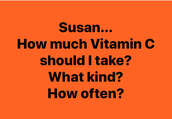
 RSS Feed
RSS Feed
